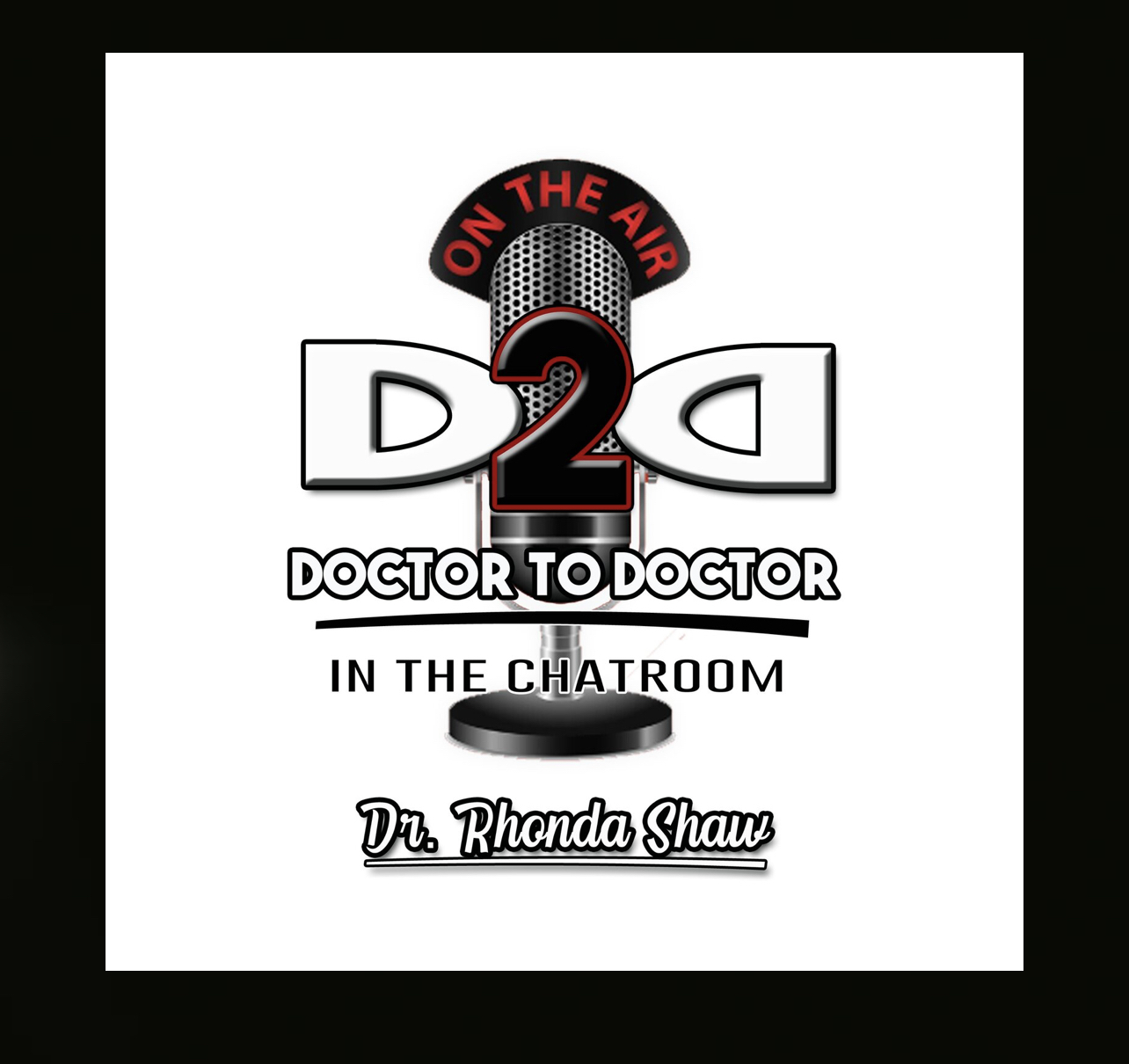We were lucky to catch up with Dr. Rhonda Shaw recently and have shared our conversation below.
Dr. Shaw, looking forward to hearing all of your stories today. One of the most important things small businesses can do, in our view, is to serve underserved communities that are ignored by giant corporations who often are just creating mass-market, one-size-fits-all solutions. Talk to us about how you serve an underserved community.
Serving the underserved and mobilizing communities takes up a special space in my life. I am committed to making a difference with the subgroup of the population that is sometimes forgotten or underserved. I think it’s important that we remember that there are a tremendous amount of people out there living with unmet needs. The twin pandemics of COVID-19 and continued racial injustice have highlighted disparities and underscored the need for more research and outreach to better support diverse and underserved communities. These challenges have opened our creative minds to finding new avenues and ways to meet the needs of these populations. My personal journey has been focused on serving underserved youth and families, building a healthier and safer community where they can be connected with the resources that they need. Understanding root causes and asking questions like, “how did they get here” has been the key to effectively addressing those needs and ensuring that the resources provided can help them overcome barriers that adversely affect their individual health, academic, and social challenges. We often say, “our children are our future,” and if we really believe that we must invest in them as if our futures depend on it. Part of that investment should be centered around ensuring that they are holistically healthy and safe. Research supports the idea that healthy child development leads to improved outcomes in educational achievement, economic productivity, responsible citizenship, and lifelong health. Early childhood trauma and Adverse Childhood Experiences disrupt development putting children at risk of increased mental health concerns, substance use, and ultimately engagement with law enforcement. Understanding development and how it is disrupted by trauma creates a foundation upon which effective youth programs can be built. The goal is to build programs that are relationally responsive and flexible to the needs of the youth and families that are at-risk. I am fortunate to be a on a journey that seeks to learn more about how to serve the underserved and develop these types of programs to better serve those in need. My fulfillment comes from helping others and growing others. I hope that my work will prompt progressive change and create more avenues by which youth and families can improve physically, mentally, and socially. To the people that read this article, I’d like to challenge them to look at others through a different lens. Maybe that person on the street that is asking for help… Don’t sit in the judgement seat and just assume that you know their story. Take a second glance and ask yourself if that person or family may have fallen upon some unavoidable tough times. I feel like when we can take a deeper dive and get some background information, we put ourselves in a position to better understand the present circumstances of others. After all, we are living in uncertain times and we all deserve to be seen through an informed lens.


As always, we appreciate you sharing your insights and we’ve got a few more questions for you, but before we get to all of that can you take a minute to introduce yourself and give our readers some of your background and context?
Although I started my career in the classroom, I always knew that it would extend far beyond the classroom setting. It seems that every step of my career path has aligned with that concept. In the words of my late grandmother, it seems “every round goes higher and higher.” In 2017, I accepted a position with Shelby County Schools. In this role, I would facilitate a comprehensive school safety program that provided services and programs for 24 middle schools to ensure that children were provided a safe learning environment. This program focused on prevention, intervention, police presence, Youth Mental Health First Aid training for staff and parents, along with other specific resources aimed at keeping schools safe. Ongoing data collection and analyzation determined progress and needed modifications along the way. During my tenure with Shelby County Schools, I became a member of the Memphis and Shelby County Juvenile Justice Board. The focus of this interdisciplinary board is to collaborate with the Board of Education in the development of school safety programs. The board partners with elected officials, local nonprofits, community, faith-based organizations, and the court systems to find ways to improve the way we address the needs of at-risk youth in our communities. By 2020, I had transitioned into a Program Administrator’s role with the University of Tennessee Health Science Center, where I facilitated programs that provided intervention, prevention, trauma-informed resources, family supports, and integrated a wraparound approach to serve a diverse population of youth and families within targeted communities. In this capacity, I served as the liaison among the organization, community partners, and grant/contracted funders, while participating in efforts to find and sustain funding opportunities across sectors. In one of the programs that was geared toward youth that were involved or at-risk of gang involvement, technical assistance was provided by one of the top research institutions in the country, Institute for Intergovernmental Research (IIR). It was that connection that afforded me the opportunity for my current role as a Senior Research Associate (SRA). I started with IIR as a Subject Matter Expert with the Opioid Affected Youth Initiative and later came on full-time as a SRA. Currently, I provide technical assistance in support of more than 30 sites across the country that serve youth and families impacted by the opioid epidemic. Our team works with program sites that work with youth and families in taking a holistic approach to integrating strategies that strengthen families and offer supports to avoid dismantling a family unit. The priority is to “treat children as children”, “serve them at home with their families and within their communities”, and to “provide more opportunities for children involved in the justice system”. I am very proud and passionate about the work that we do. While my weekdays are devoted to this work, my Saturdays are spent hosting a radio show, where I get to discuss topics that impact our communities and our world. We discuss mental health, substance use disorders, domestic violence, human trafficking, and so much more. We even get the chance to do the fun topics, such as love and relationships. I’m almost three years into the show, Doctor2Doctor- In the Chatroom, with my cohost Dr. Nicole West. The show airs each Saturday @ 2:00 p.m. CST on 94.7 FM, or you can stream live from anywhere in the world at wojg.com. This is just another platform that I am fortunate to have access to for sharing relevant information



How about pivoting – can you share the story of a time you’ve had to pivot?
The pandemic has been unprecedented, and it has certainly meant being able to make adjustments, sometimes at a rapid pace. When I first started in the role with UTHSC, it wasn’t very long thereafter that the pandemic hit. There I was gearing up to facilitate a program that was intended to be school-based, and suddenly the world was shutting down. Although the world was in this crisis, the need for the program and services still existed. Not to mention, there was a risk of losing the federal funds that had been acquired, if there was no safe way to implement this program. I was tasked with restructuring the program and framing it in a way that we could effectively serve the youth and families yet keep everyone involved safe. One of the immediate changes was to transition the initially proposed school-based intervention model to a community-based approach due to subsequent school closures. Hosting a community forum with community partners that serve youth at-risk of gang involvement to identify those that could benefit from the trauma-informed and family-centered services provided by this model would be the next step. Lastly, trained Intervention Specialists who are aware of the needs related to this population of at-risk youth were assigned to targeted areas to provide services based on the safety guidelines laid out by the Center for Disease Control (CDC), in order to keep everyone safe from COVID-19. Through collaborative efforts with high-yielding community partners, we were able to launch this initiative successfully, and sustain our efforts to expand the services with a trauma-informed approach, and with the addition of a Family Support Specialist to the intervention team to provide a family-engaged approach.


Can you share a story from your journey that illustrates your resilience?
I think that I can safely say that most of my work has been work that I am passionate about. I have learned that sometimes, passion alone, is not enough. Work environment is important, and the effects of incivility and toxicity can negatively impact work performance. In fact, some of the most innovative and creative people can become less motivated, when exposed to toxic people in leadership roles. Notice, I’ve said, “people in leadership roles.” I am very careful not to call them leaders, because effective leaders would not conduct themselves in such a way. It doesn’t matter if you’re on the receiving end of incivility or if you’re just a witness to it, there is still going to be negative impacts, where people are less motivated. There have been times in my career where I have had to attach myself to the mission and vision, so that I didn’t lose site of the overarching goals of the work, because I was either experiencing incivility and toxicity or witnessing it. The levels of stress caused by it resulted in a disruption of workflow and productivity. Unfortunately, some organizations and human resources miss opportunities to get it right when individuals go through these experiences. I was literally told by the top human resource individual at an institution that they couldn’t do anything about the toxic, uncivil person in leadership, because the person brings in too much money to the institution. In fact, I was encouraged to take a leave of absence and find another position. Sadly, I learned quickly that this organization was not attached to the mission and vision of the work, and they were not concerned with the costs that they could possibly incur because of incivility. Their only concern was how much money this individual could possibly bring in. It’s times like these that I have to pull out my “big guns,” faith and resiliency. I believe that faith plays a positive role in resilience building. Faith links our present circumstances to our vision for the future. Imagine being in this situation, you need your job, you’re passionate about the work that you do, you know the work that you do is important, the toxic person isn’t going anywhere, and the organization has clearly indicated that you nor your work is more important than protecting the offender. I had to rely on my faith. I had to stay focused on the goal of the work. That way, I could not only have a livelihood, but I could help the children and families that so desperately needed the services. And, although I and others were able to navigate through this difficult situation and continue to do the work, it was one of my greatest life lessons about faith. Sometimes, you have to do as Dr. Martin Luther King, Jr. said and “take the first step, even when you don’t see the whole staircase.” I took that step and I’ve landed in an amazing place.
Contact Info:
- Website: doc2docchat.com
- Facebook: https://www.facebook.com/Doc2docchat
- Youtube: https://www.youtube.com/channel/UCXNHTZeXHGBlkSltknHLwWg
- Other: Email: [email protected]


